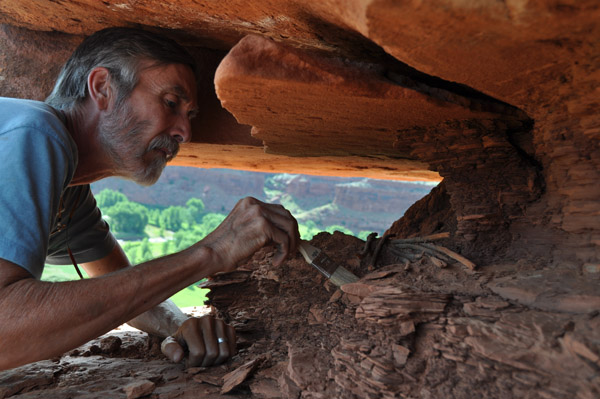 |
|
Robert L. Kelly at an archaeological site in Wyoming. [Photo provided to China Daily] |
However, Kelly believes that cooperation has been encompassing increasingly larger numbers of people, and the next level of cooperation above that of the state is "the world."
In the book, he argues that the fifth beginning will witness end of war, capitalism and the sacred status of nation-states in favor of "the beginning of a new era of global cooperation".
Nevertheless, he notes that nationalism is on the rise, war is still prevalent, although its actual frequency and the number of deaths it causes has declined.
"Populism, war and nationalism are expected results of globalism and an increasingly integrated world, where people of different cultures must live together. However, there is also a counterforce to these trends-a growing global culture."
Still, he admits the transition to so-called "global citizenship" will not be easy.
"Many nations today, including my own country, will fight against it," he says. "In the end, though, we will have no choice but to cooperate more, and to recognize that the peace and prosperity of any one nation depends on peace and prosperity for all nations."
As a result, Kelly expects to see an expanded role for the United Nations and the diversion of resources from the military industrial complex to nation-building.
What will the world be like if after capitalism, war, and the concept of nation-states were ended? Kelly does not give a clear prediction.
"I hope that the world will become the harmonious place that Confucius envisioned," he says.
Additionally, he also believes this transition will leave fruitful legacies for archaeologists in the future.
"They would find evidence of dramatic alterations in the world's atmosphere, water and land," Kelly says. "Fly over the United States, or China, and you'll see landscapes completely altered by agriculture, cities and transportation networks."
Archaeologists would also see indicators of global trade.
"In particular, they would find that goods manufactured in China are found in every other place in the world," he continues. "Analyzing the chemistry of human skeletal remains would yield proof that human diets were created not only from local foods but from foods imported from all over the world."
All of these would give them a timeline of how the world became more tightly interconnected, he concludes.
Kelly visited many cultural heritage sites and research institutes for archaeology during a visit to China in 2013, which he describes as "insightful and productive" and important for writing some chapters in The Fifth Beginning. The professor says he is especially interested in China's Paleolithic period. Cooperating with Chinese archaeologists may perhaps be his next project.
"With its long prehistory and history, and its long legacy of written records," he says. "China can play a key role in the study of the origins of agriculture and the state."
As far as the country's role in the fifth beginning, he considers that China is "obviously a rising economic and political power".
"It perhaps places a greater responsibility on it (China) to change the way the global system operates, and not to use that responsibility only to improve life for the Chinese," he expects.